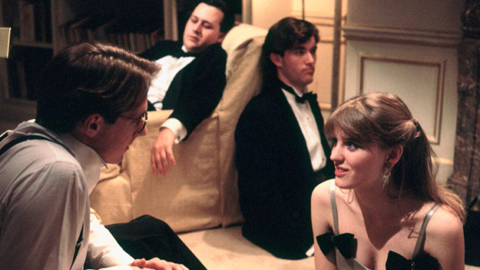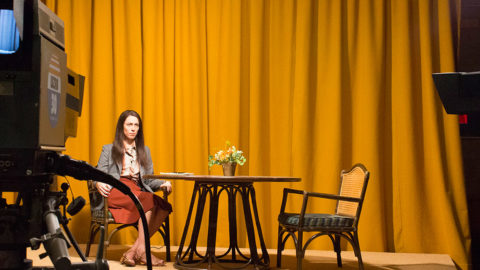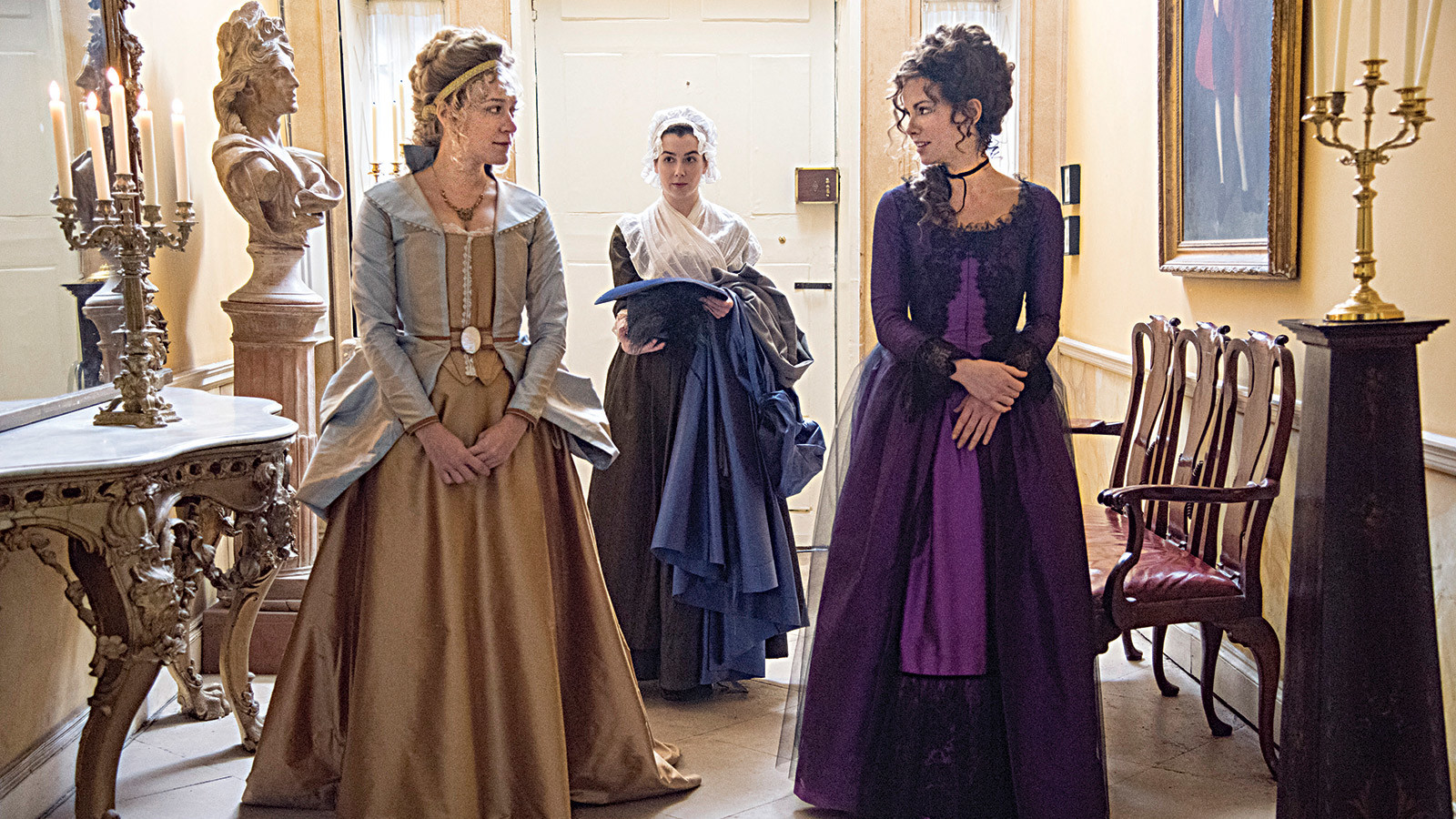
Review: Love & Friendship
There’s little to no mention of love in Love & Friendship, Whit Stillman’s acerbic adaptation of Jane Austen’s posthumously published novella Lady Susan. The book’s recently widowed heroine, played here with duplicitous glee by Kate Beckinsale, is the kind of modern 18th-century woman who wants it all: financial security and sex, that is. With her means of support rapidly dwindling, marriage is clearly the endgame for Lady Susan—as it is for all of Austen’s leading ladies—but the romantic emotion that’s supposed to go along with it proves to be little more than a social affect in this wry comedy of manners. The happiest of matrimonies the film presents is that between the director and his source material; Stillman, who established himself as a master of upper-caste repartee with films like Metropolitan (90) and The Last Days of Disco (98), feels more at home in Austen’s wit-driven world than ever before. Streaked with the director’s decidedly modern strain of cynicism, Love & Friendship might very well be the most faithful translation of Austen’s biting humor and highly practical feminism to date.
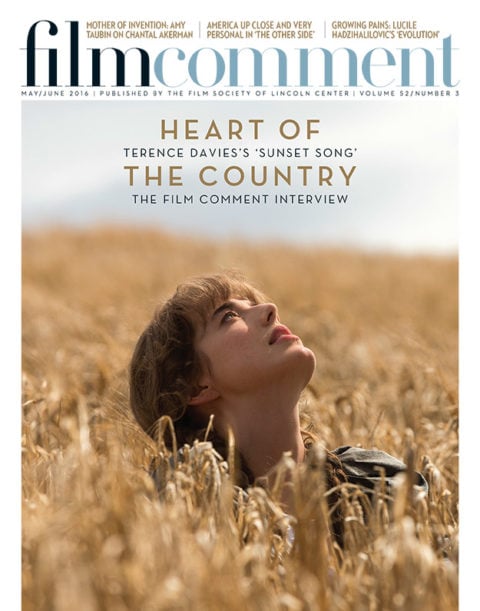
Undisputedly attractive, and very, very unmarried, Lady Susan poses the greatest possible threat to the delicate social order of England’s landed gentry on the outskirts of London. Though she intends to wed (strictly for money, of course), she’s also determined to maintain an ongoing affair with her married lover. Traveling to the idyllic countryside estate of Churchill under the guise of visiting her in-laws, Lady Susan has her eye on Reginald De Courcy (Xavier Samuel) as a match from the get-go. Young, rich, and endearingly earnest, he’s the perfect target for her shrewd manipulation, and it doesn’t take more than a few turns about the garden before she has him wrapped around her little finger.
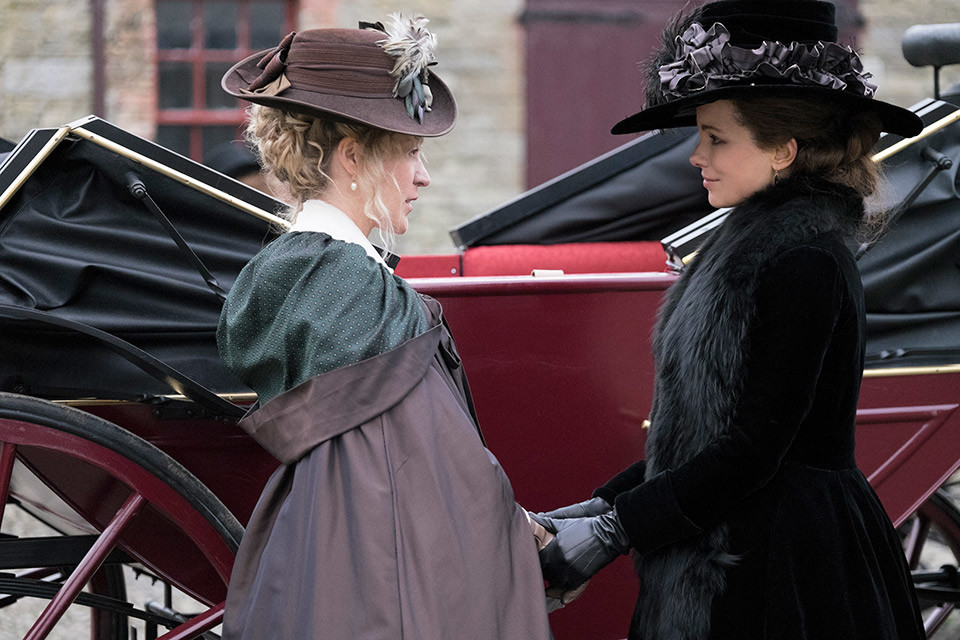
Replete with ornamented interiors, stately façades, and plenty of velvet to go around, Love & Friendship is the most visually sumptuous of Stillman’s movies. On the spectrum of period pieces, though, the director remains relatively utilitarian in his approach. Never allowing the luxurious backdrops to overshadow the foreground, he ensures that the droll dialogue is the film’s main attraction. While the writer-director has significantly whittled away the book’s epistolary structure, the act of letter writing—and the constant verbal recounting of events that is otherwise known as gossip—remains crucial to the plot, which unfolds within our heroine’s carefully calibrated version of the truth. “Facts are horrid things!” she exclaims to her co-conspirator (played by a tightly corseted Chloë Sevigny) when an especially candid note is intercepted.
If Lady Susan appears to be all frivolity and no substance, it’s precisely because she possesses the depth to understand that surfaces are of the utmost importance. All too aware that the very concepts of decorum that dictate female behavior (in public, at least) are merely a performance, she takes command of the social stage and fashions her life as she likes it—even if that means humoring incredibly daft men like Sir James (Tom Bennett), whom she intends to foist upon her daughter, Frederica (Morfydd Clark). “But marriage is for one’s whole life!” the wholesome girl appeals in protest. “Not in my experience,” her mother retorts.
With his vacant smile and inability to so much as correctly identify the peas on his plate, Sir James is like a grossly caricatured version Pride & Prejudice’s Mr. Collins, the well-to-do but rather ridiculous clergyman whose proposal is so vehemently turned down by Elizabeth Bennet. But there’s a brilliant flip that happens in Love and Friendship, which owes as much to the liberty Stillman takes with Austen’s original ending as it does to the then-20-year old author’s palpable disenchantment with the limited options available to her sex. While Collins’s lack of intelligence threatens Elizabeth with a lifetime of misery, Sir Thomas’s ignorance—particularly with regard to the carnal aspects of female nature—holds the key to Lady Susan’s independence. Love might be a luxury she can’t afford, but she’s cunning enough to maintain control over her own affairs.
Emma Myers is a regular contributor to FILM COMMENT.



